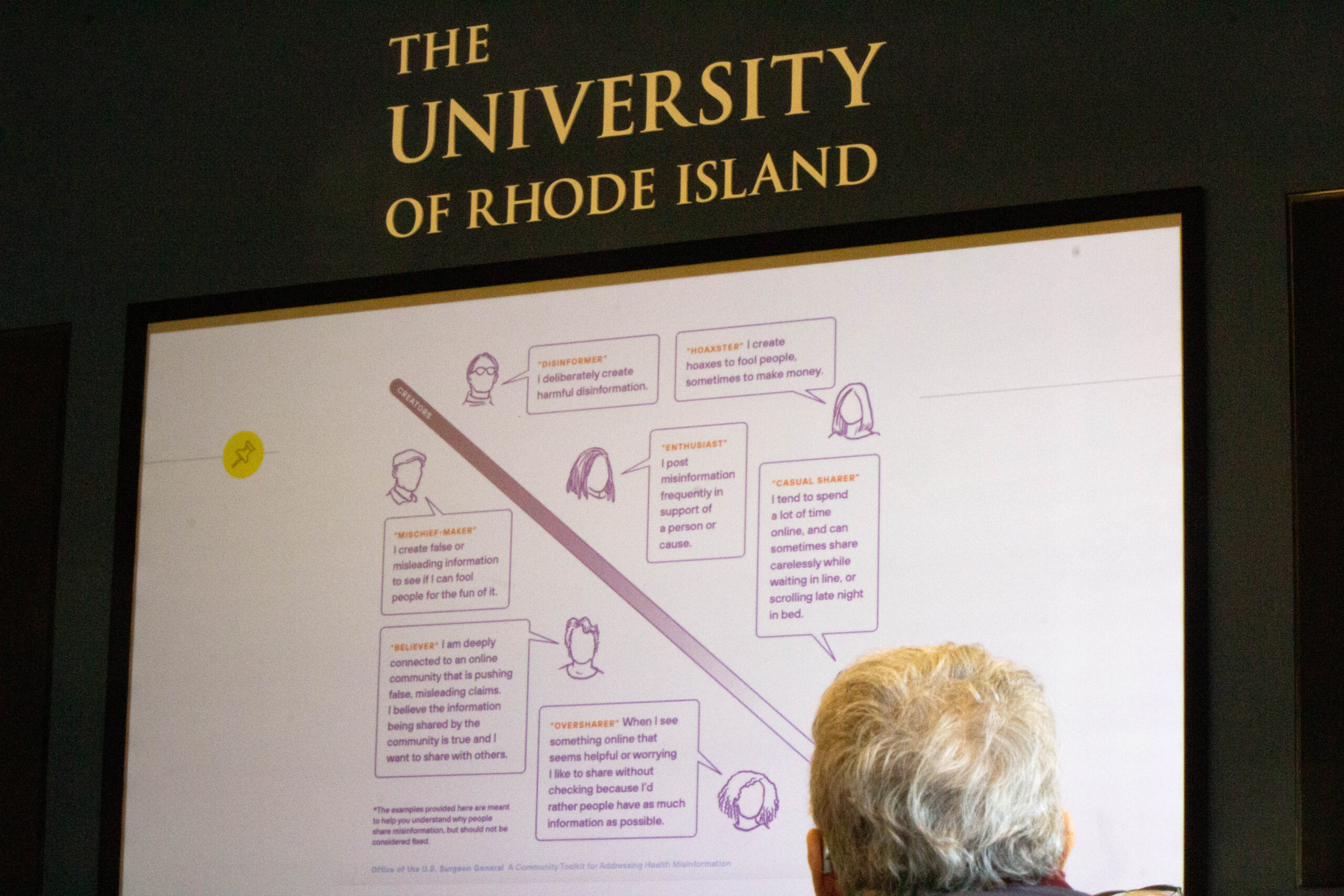How To Be a Media Literate Citizen: “Fake News, Political Polarization and Modern Media.” PHOTO CREDIT: Maddie Bataille | Photo Editor
In the first portion of The Harrington School of Communication and Media’s “How to be Media Literate Citizens” conference, a panel of media professionals shared insight about the growing presence of misinformation in the news.
The panel featured Justin Silverman, executive director of the New England First Amendment Coalition, Dan McGowan, an editorial columnist for the Boston Globe, Joseph Wendelken, Public Information Officer from the RI Department of Health and University of Rhode Island senior Kate Leblanc.
The panel was hosted and moderated by Ammina Kothari, director of the Harrington School. Audience members were encouraged to ask questions and contribute to the conversation with the panelists.
The conversation focused on misinformation, fake news and political polarization all associated with the modern media.
“I think the polarization that we are kind of dealing with broadly in this country, internationally as well, but obviously in this country sort of feeds off of misinformation,” McGowan said.
The COVID-19 pandemic has led to a large increase in misinformation regarding mask and vaccine efficacy and mandates, according to Wendelken and others on the panel.
“I heard a lot that we were thinking a lot about disinformation and misinformation in the context of presidential politics a couple of years ago,” Wendelken said. “But during the pandemic response, it became very real and it was literally a matter of life and death.”
The panel addressed how to spot misinformation and how to best approach a situation where false information is being shared.
McGowan continued to share that understanding perspectives can be the most effective way to combat misinformation. That understanding can often come through having difficult conversations and asking questions that get to the heart of the issue.
“I think as journalists, it’s our job and something that quite frankly, we have not been very good at, to understand multiple sides of things,” McGowan said. “Politics in particular, sometimes people believe something very strongly that I might think is untrue or just misleading, but they might have another view of it that is a little different.”
The panel shared their thoughts on the role of social media in the rise in misinformation over the years.
“I think a lot of people use social media as a place to put new information,” Leblanc said. “[Social media] also can be utilized as a tool to kind of draw more attention to the news that has already been put out, perhaps leads to greater attention or greater value being directed to it.”
The panel also talked about the role of local news compared to national media in the spread of misinformation.
“We can first start by distinguishing political commentators, entertainment and the media generally, from local news reporters, like Dan and others,” Silverman said. “Distinguish the work that they’re doing from everything else that seems to get grouped under this umbrella called the media.”
Wendelken highlighted his experiences working in Rhode Island during the ongoing COVID-19 pandemic and the role of the media in providing information to the public.
“Local journalism is extremely important,” Wendelken said. “For a lot of people, local journalists are really seen, as you know, as truth tellers. I really see journalists as partners. What we’re trying to do in the health department is get out information about how to make decisions to live healthier lives. It’s been a focus of ours to build those relationships with journalists.”
The panel concluded the discussion with advice for all citizens consuming media in this current age of misinformation.
“Be skeptical, I mean, that’s my advice to everyone,” Silverman said. “Anytime you see information, just ask yourself, ‘is it credible?’”
Silverman explained that asking questions of the credibility of the media can be a great way to combat misinformation.
“You’ve got lots and lots of news and information to consume right now,” McGowan said. “It’s all at your fingertips. You can do this, and I hope you will.”





